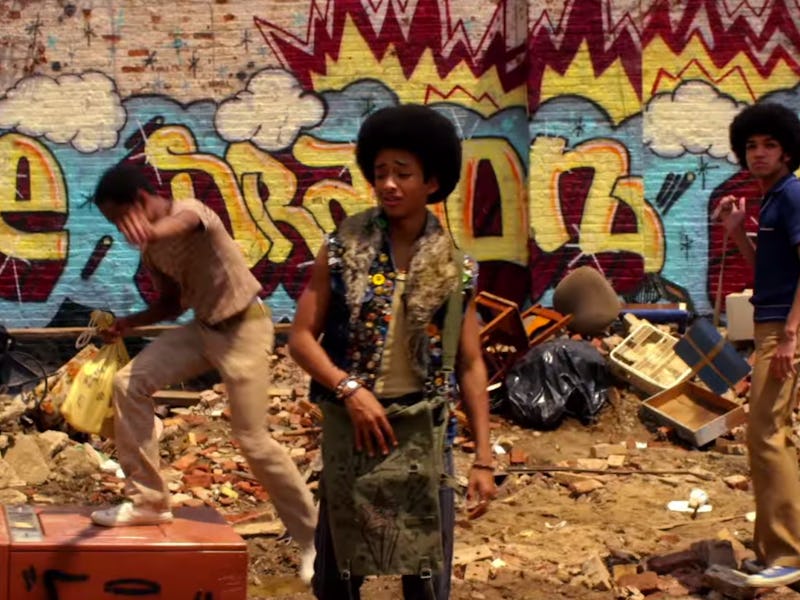Baz Luhrmann's 'The Get Down' Could Be Worth $120 Million After All
It creates a comprehensive view of its time and place, offering an inventive picture of hip-hop's beginnings.

The good news: Baz Luhrmann’s tortured, $120 million dollar passion project, the Netflix miniseries The Get Down, may create the level of engagement to justify the insanely large investment.
Even though Netflix claims it doesn’t rely on ratings as a yardstick of success, it would still be a shame if the now-veteran Moulin Rouge director’s most ambitious undertaking yet turned out to a ludicrous, Vinyl-like misstep. TV hasn’t been doing at all well with music sagas this year, but The Get Down, with its hour-and-a-half-long pilot, is threatening to change that.
This is going to appeal to the following groups: serious music fans, those who can tolerate a by-the-book coming-of-age story — the kind we’ve been acclimating to since the days of, say, the VH1-beloved Temptations miniseries or That Thing You Do — and those who worship the Luhrmann. It will annoy those averse to easy catharsis in TV and movies: the young man inspired to pursue art to impress a crush, the crooked industry thug who threatens to chew him up and spit him out, the discovery of childhood hero’s dark side, the loss of a loved one driving a young man’s every move.
Justice Smith’s Ezekiel is a poet, pianist, and hopeless romantic vying desperately for the love of Mylene (Herizen F. Guardiola), a preacher’s daughter who wants to be a disco diva. The first episode is a free associative exploration of the world which surrounds him — a South Bronx which looks as down on its luck as Vienna in the wake of the Second World War. Luhrmann delves into gang rivalries — focusing on the antagonistic, Warriors-like Warlords — government corruption, and the sometimes-makeshift parties around which social life revolves: most importantly, the project hip-hop party run by Grandmaster Flash when Zeke proves his worth as a “wordsmith.”
With the tension between rival camps at the sidelines of the action — it culminates in a brutal violence that we’re led to believe is routine — one can’t help feel a bit of déjà vu; we’re transported back to Luhrmann’s most beloved film, Romeo+Juliet. Tagger, pusherman, and expert breakdancer Shaolin Fantastic (Shameik Moore) is Zeke’s Mercutio, his acrobatic roof-jumping, balletic vial distribution tactics, and rubbery maneuvers in the dance circle slowed down to a glacial pace and interspersed with voiceover slips of the same kung-fu movies which would later inspire the Wu-Tang Clan.
Both a potential issue and the signature of Luhrmann’s direction of The Get-Down is how it elongates even minor moments. The director’s signature is not as much the mashup of TV-movie/David Simon-ish plotting, but the baroque, soundtrack-dominated style through which he interprets the script. Remember how boring The Great Gatsby is, and then hope with me that Luhrmann worries about runtime a little more in the ensuing episodes of The Get-Down.
Let’s also hope for even more old-school hip-hop and disco, rather than the facsimiles or anachronistic originals commissioned for the show (included here). Or not — even if the older music is better, postmodern collage is what makes Luhrmann Luhrmann. The Luhrmann-ism of Luhrmann almost makes him impervious to criticism — the points of annoyance a matter of personal preference more than anything. What The Get-Down has that movies like Gatsby and Australia lacked is representations of acutely rendered, palpable human emotion among the chaos. Along the way, you’ll learn something about the dire condition in the ‘70s South Bronx, and the unique art form — born of rebellion and creative misuse of technology — that arose from it.